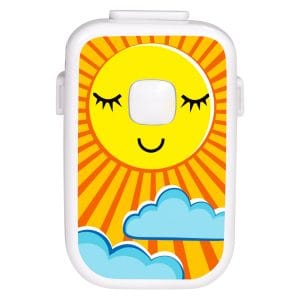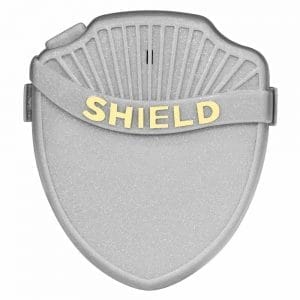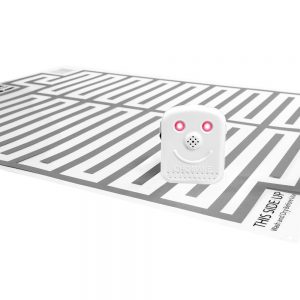Daytime Bedwetting
In this article:
Daytime Bedwetting Do’s and Don’ts
Nighttime bed-wetting also called primary nocturnal enuresis is a common problem in children. However, it can be very upsetting for you and your child. How you handle this problem as a parent is crucial and can have a huge effect on your child’s success in achieving dryness. Here are some helpful bedwetting tips that you can use when talking to your child about bedwetting.
- Offer Information: Telling your child he or she is not only one with the bedwetting problem is essential. There are about seven million other children out there with the same problem. This information will release some anxiety from your child’s mind, and make them feel better about themselves.
- Talk About Family History: You must tell your child if you or anyone in close family has faced bedwetting. Sharing personal experiences might help your child to open-up as well as understand that bedwetting is hereditary, and not their fault.
- Never Blame your child: Bedwetting is involuntary, and not your child’s fault. Even if there is a family history your child is not to be blamed. Reinforce that bedwetting is not their fault, and explain that a number of causes such as small bladders or being a deep sleeper can cause involuntary urination.
- Seek Medical Advice: Discuss with your child to see a pediatrician or urologist to help rule out any medical causes for bedwetting.
- Discuss Treatment Options: Talk to your child about the available treatment options such as a bedwetting alarm, vibrating potty training watches, medications, and changes in lifestyle. Explain how each of the option works and how they might help in overcoming bedwetting.
- Discuss lifestyle changes: Explore some lifestyle change options such as reducing caffeinated drinks, salty foods, not having water or fluids closer to bedtime, and most importantly using the restroom before going to sleep.
- Encourage Sleepovers and Camps: Many children with bedwetting hesitate going to sleepovers or overnight camps. Talk to your child about using disposable underwear, medications, and sharing the problem with other parent at sleepover or camp counselor.
- Share the Responsibility: Involve your child in sharing the responsibility such as changing or washing sheets in case of an accident.
- Stay Positive: Lastly, be calm and encouraging, choose a treatment plan, and work with your child, and remember to reward your child for every milestone.
Practicing these bedwetting tips while dealing with bedwetting might help your children in his or her path to dryness.
Causes of Daytime Bedwetting
If your child is waking up with wet pajamas and soiled sheets he or she might be suffering from nocturnal enuresis (Primary or Secondary enuresis). Primary enuresis is defined as daytime wetting that persists past the age a child is expected to have gained control over his or her bladder, while secondary enuresis occurs when a child who has been potty trained for 6 months to a year spontaneously begins daytime wetting.
Here we explain some of the most common daytime bedwetting causes.
Causes of Primary Enuresis
- Overactive Bladder: An overactive bladder is one that contracts and empties without warning. This cause of daytime wetting cannot be controlled by your child as it is entirely involuntary.
- Constipation: A full rectum presses against the bladder and irritates it. The irritated bladder is then more likely to contract and empty without warning.
- Urinary Tract Infection (UTI): UTIs are less common than the previous two causes of daytime wetting. Like with constipation, a urinary tract infection causes the bladder to become irritated and contract without warning. In this case, the irritation is caused by bacteria, yeast, or a virus. The infection may cause frequent urination and/or painful urination, both of which increase the chances that the child will experience daytime wetting. When urination is painful, your child is less likely to use the bathroom even when your child recognized that he or she should, increasing the chance that when the bladder contracts involuntarily, it is full.
- Irregular Toilet Habits: On an average, children should use restroom five to seven times a day. However, if he or she only uses the bathroom two to three times a day, and does not use the bathroom when he or she first wakes up, or does not completely empty his or her bladder when he or she does use the bathroom, daytime wetting may be a likely result.
Causes of Secondary Enuresis
- Stress: Emotional stress stemming out of events such as birth of a new sibling, divorce or separation of the parents may stress out the child that he or she responds to with daytime wetting.
- Environment Change: Starting a new school or moving to a unfamiliar place or death of loved one can result in bed wetting.
- Peer Pressure: Daytime wetting may make the child nervous about going to school or playing with friends for fear of having his or her secret discovered. This can exacerbate the problem by causing the child even more stress and making the problem worse.
Daytime Bedwetting: How it Impacts Children
Daytime wetting or Diurnal Enuresis can be a stressful childhood situation. Although less common than bedwetting (nocturnal enuresis), about 1 out of 4 children, according to Web MD, who wet bed at night also wet the bed during the day. Children suffering from daytime wetting are often hesitant about discussing their predicament at home. They live in perpetual fear of their friends discovering this embarrassing secret, and their siblings teasing them for their wetting habits.
The fear of daytime wetting might have trouble making friends or performing at school. The constant social pressure leads to a decaying morale and low self-esteem, which ultimately impacts negatively on their general well-being. Diurnal enuresis can also become a source of problems, especially if their parents react reproachfully to the wetting. In absence of parental support children can often become withdrawn and anxious, and they might refuse to interact and be social in most situations.
It is important to assure your child that bedwetting is a lot more common than it may be perceived. In the U.S., there are nearly 7 million children who suffer through enuresis. Ensure your child that their wetting is not their fault, and that working together can help them resolve this issue. Often times, children who have daytime wetting (diurnal enuresis) also have nocturnal enuresis (nighttime bedwetting), which means they wet their beds during the night without realizing it. It is absolutely important to not get angry at your child for their wetting because they do not have control over it. Showing frustration or anger at them only increases their anxiety and, thus, their negative self-image.
Although it may be frustrating for you, as a parent to see your child go through something like this, it is much more embarrassing for your child. Instead of getting angry at your child, try to be more supportive and encouraging, to see a positive result.
Daytime Bedwetting Solutions
Daytime wetting (diurnal enuresis) is easier to treat over nighttime bedwetting (nocturnal enuresis) because children are conscious of their activities during the day. Diurnal enuresis may be caused by a variety of reasons, but one of the most common reasons is dysfunctional voiding (urinating). In dysfunctional voiding, children are hesitant about using public restrooms or they are unwilling to give up on play time. They eventually learn to disassociate the need to urinate and a full bladder, and are often unaware that their bladder is full. Children are also usually in a hurry to get back to their previous activity, so even when they do urinate on the toilet, they do not empty their bladders completely.
There are a number of different bedwetting solutions to combat your child’s daytime wetting.
- Timed Voiding Technique: Typically, a child should be able to urinate every 2-3 hours throughout the day. If your child is not urinating at that pace, then their water intake is poor, and should increase.
- Double Voiding: Have your child empty his/her bladder completely at least twice a day (a technique called “double voiding”). After your child has finished urinating, wait for some time before having them urinate again, to ensure that they have completely emptied their bladder.
- Daily Bowel Movement: Research shows that constipation and urine accidents are directly interlinked. Therefore, make ensure that your child is consistently having a bowl movement every day.
- Completely Emptying of Bladder: When emptying their bladders, children should be taught to take their time and relax. There is no need to strain or push in order to urinate, and in fact, this is not normal.
- More Fluids: A good fluid intake is important, in order to flush out the bladder and kidneys. Normal color of urine should be clear or light yellow, not amber or dark yellow.
- Hygiene: It is important to be hygienic. Girls should be taught to wipe themselves, from front to back, and sit on the toilet with their legs wide open. In addition, bathing suits should be taken off when not swimming and they should not be used as replacement underwear. Showers are better for daily hygiene than sitting in bathtubs with soaps, shampoo or other oils, which may be irritating.
- Daily Bowel Movement: A daily bowel movement is important because many times constipation and urine accidents are interlinked.
- Bedwetting Alarm and Medication: Bedwetting alarms go off when they detect urine and therefore, can be helpful when a child is playing and doesn’t want to use the restroom. Medication can also be helpful, though they may also lead to side effects.
These bedwetting solutions and techniques won’t change your child’s daytime wetting instantly, but over time, their behavior pattern will change and they will overcome their tendency to wet during the day. Though it may be frustrating at times, be encouraging and hopeful and it will eventually lead to positive results.
Daytime Bedwetting Treatment Options
Almost all cases of daytime wetting are caused medical or emotional issues that are beyond a child’s control. In these cases, a child needs assistance from parents or medical professionals to recover from the problem. Here are some daytime bedwetting treatment options that you can explore.
Treating Bedwetting Caused By Medical Issues
- Overactive Bladder: Bedwetting arising out of an overactive bladder can be cured with medications that can calm the bladder, causing it to contract and empty less. Occasionally, an emotional stress can cause overactive bladder and resolving the issue that is causing the stress may be the solution to curing the daytime wetting.
- Constipation: Watch if your child is constipated. Constipation is another common, but often overlooked cause of daytime wetting, which can be solved by including more fluids and fiber in the child’s diet. It is important to monitor both child’s urine and stool.
- Urinary tract infections: Though less common, can also be a cause of daytime wetting. Seek a doctor’s advice and prescription for treating urinary tract infections.
Addressing Emotional Issues
- Change in Physical Environment: Moving or changing schools may trigger bedwetting. In such cases reassuring the child and setting up and maintaining a new routine may alleviate emotional stress, and eventual cure bedwetting.
- Change in Family Environment: A child experiencing emotional anxiety arising out of divorce or separation of parents or a death in the family might wet the bed. In such a situation providing a healthy environment at home and school (talk to the teachers and make them aware of the problems at home) may help in curing bedwetting.
Preventive Measures
- Set a reminder: If the child’s daytime wetting is occurring because the child forgets to use the restroom regularly then simply schedule bathroom times at set intervals. Rewarding dry days can motivate the child to remember to use the bathroom regularly.
- Eliminate Caffeine: Cut out caffeine from child’s diet as it increases the amount of urine the body makes, while dehydrating the body, and possibly causing constipation.
Parental Advice: How to Deal with Bedwetting (Enuresis)
Bedwetting is an under-reported and commonly misdiagnosed problem. If your child wets bed, neither you nor child are at fault. Listed below are some tried and tested parental advice to use.
- Identify the cause: Bedwetting can be caused either due to medical issues such as constipation or due to emotional stress like divorce or separation of parents or moving. It is important to identify the underlying cause and deal with it immediately.
- Treatment Options: Enuresis can be resolved with the right bedwetting treatment options such as bedwetting alarm systems and/or medication. Bedwetting alarms have been reported to be very effective. There are quite a few alarms available there that vary in quality and style. However, all alarm systems include an alarm unit and moisture sensor. The sensor detects urine immediately and the alarm goes off waking up the child to use the bathroom.
You can use medicines if your child has bedwetting due to medical issues or if you are sending your child to a sleepover or an overnight camp. However, consult your child’s pediatrician first.
- Involve Your Pediatrician: It’s good to involve your child’s pediatrician in the treatment plan. Doctors can examine family history, offer counseling, evaluate if the child has any psychological strain or medical issue such as an overactive bladder, constipation or UTIs (unitary tract infection), and then suggest an appropriate treatment plan.
- Prepare Ahead: If a bedwetting accident occurs at night it might be helpful to have fresh clothes and towels next to the bed so that you can quickly put the child back to sleep.
- Teach Responsibility: Involve your child in cleaning up–changing and washing sheets or clothes. The inconvenience of cleaning up not only teaches responsibility, but it might motivate the child to use restroom before bed and empty his or bladder before sleep.
- Be Supportive: Bedwetting can be frustrating for you as a parent. But staying calm is essential. Blame or negative comments from you can certainly have an adverse effect on your child. Be patient and persistent, follow consistent bed time routine, and go for regular health-checks.
- Impose a No Teasing Rule: Siblings or any other family members and visitors should not be allowed to be tease children about bedwetting. As a parent you must sensitize the siblings and other family members toward the situation of the bedwetting child.
- Reward Dry Nights: Lastly, appreciate your child for each milestone. Introduce a sticker system. Each time the child doesn’t wet the bed you can give him or her a sticker of child’s favorite cartoon character, and once the child goes dry a whole week you can go on a family treat at the restaurant your child picks.








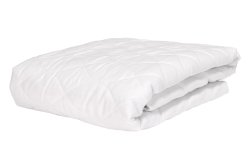 Our #1 Top SellerIdeal for Daily Use
Our #1 Top SellerIdeal for Daily Use Premium Quality BeddingSoft and Comfortable
Premium Quality BeddingSoft and Comfortable Premium Quality BeddingLarge Urine Absorption
Premium Quality BeddingLarge Urine Absorption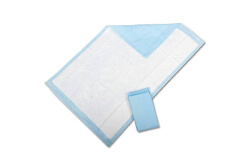 AFFORDABLE PRICECHANGE DAILY AS NEEDED
AFFORDABLE PRICECHANGE DAILY AS NEEDED
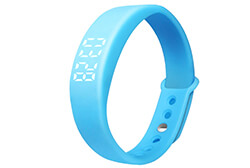 Sleek, Stylish and Affordable Watch
Sleek, Stylish and Affordable Watch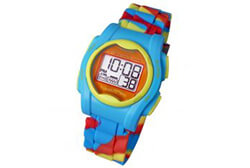 Multi-Function Watch with Numerous Features
Multi-Function Watch with Numerous Features Recommended watch for teens and adults
Recommended watch for teens and adults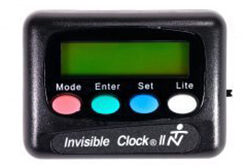 Perfect for medication and other reminders
Perfect for medication and other reminders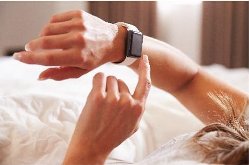





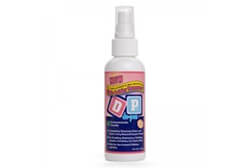


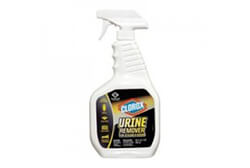

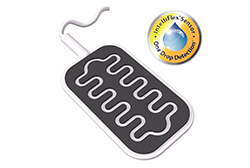
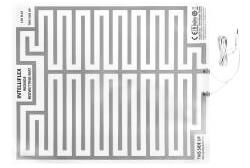

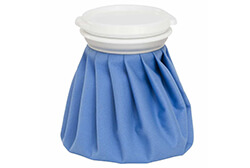

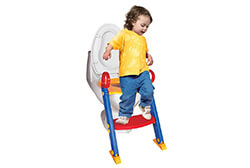
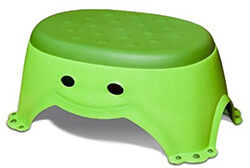
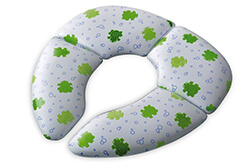
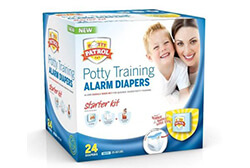

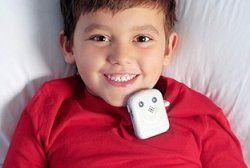






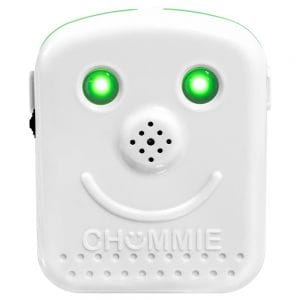
 Children
Children Play Alert Tones
Play Alert Tones Why buy from us
Why buy from us LARGE SELECTION
LARGE SELECTION EFFECTIVE ALARMS
EFFECTIVE ALARMS FAST SHIPPING
FAST SHIPPING SPECIALIST SUPPORT
SPECIALIST SUPPORT